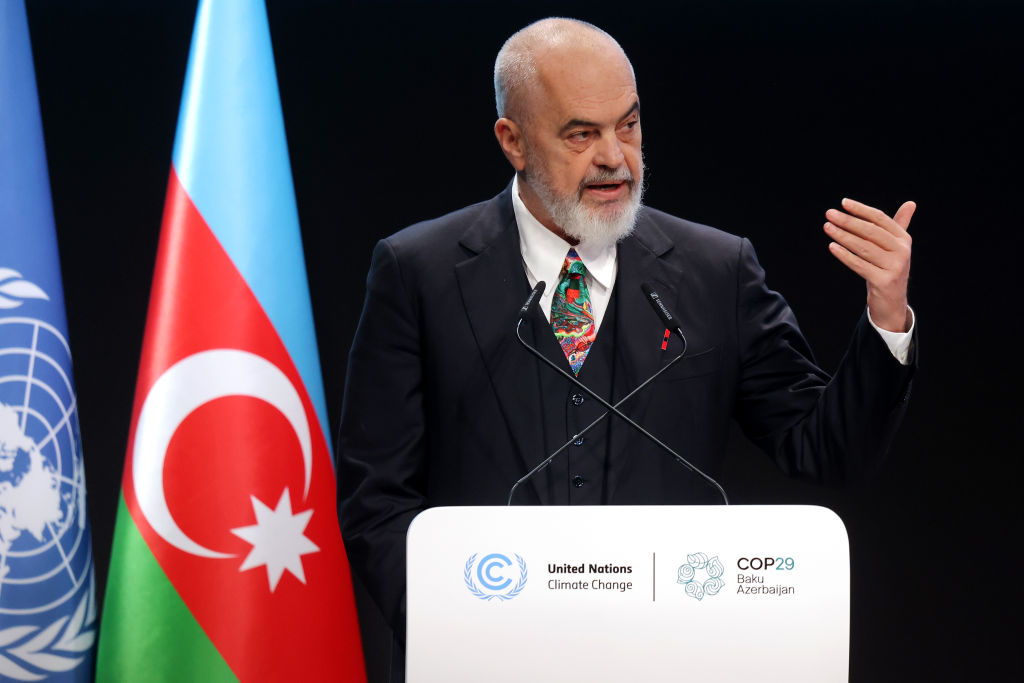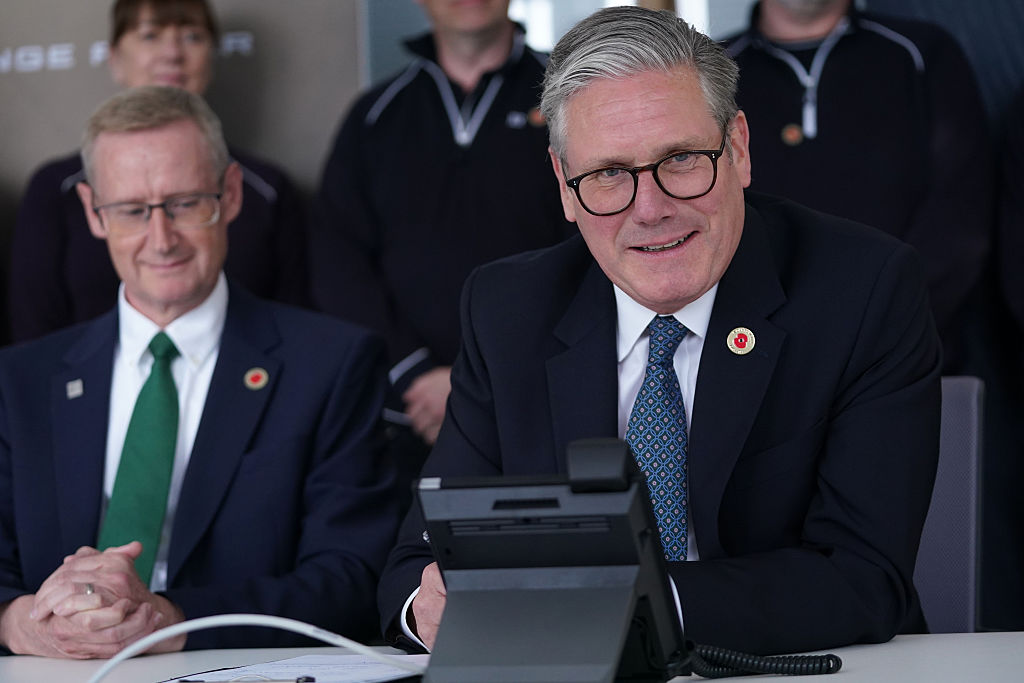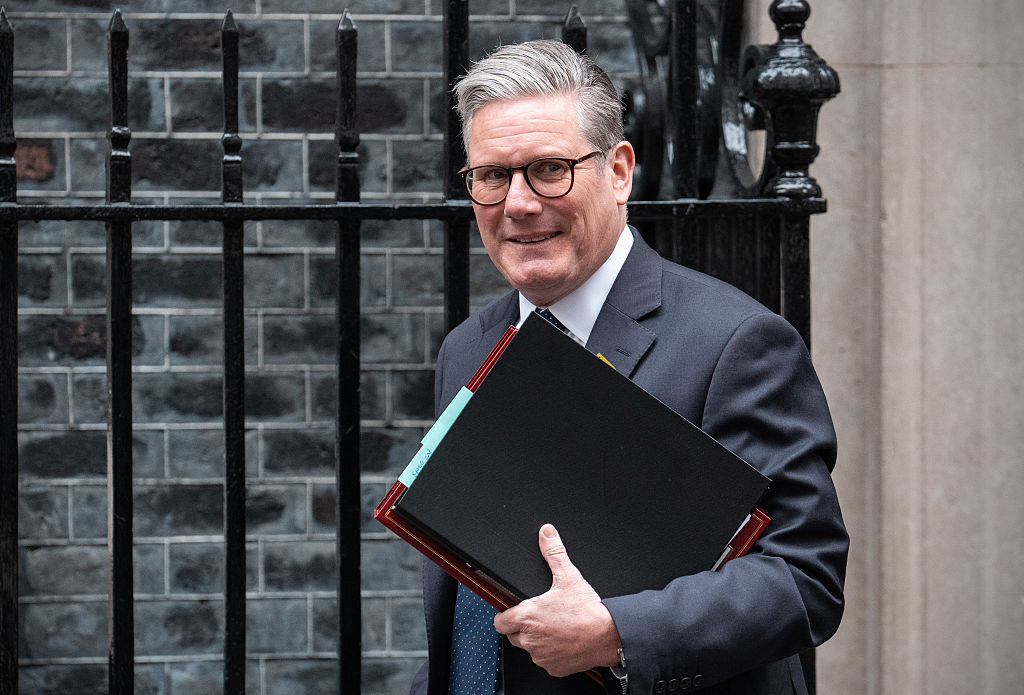German Chancellor Friedrich Merz said Germany along with Ukraine’s other key Western backers have lifted range restrictions on weapons they send to Kyiv to fight against Russia.
Russia in response warned that such a move would be “at odds” of reaching a peace agreement.
Merz, who took office earlier in May, also vowed that “we will do everything in our power to continue supporting Ukraine, including militarily”, in close co-ordination with other supporters.
“There are no longer any range restrictions on weapons delivered to Ukraine – neither by the British nor by the French nor by us nor by the Americans,” he said in a TV interview on May 26
“This means that Ukraine can now defend itself, for example, by attacking military positions in Russia … With very few exceptions, it didn’t do that until recently. It can now do that.”
Merz did not specify at which stage which country, including his own, had decided on any changes, sparking some confusion.
Former US president Joe Biden decided in November 2024 to authorise Ukraine to use long- range Army Tactical Missile System, or ATACMS, against targets inside Russia.
Also in November, Ukraine fired UK-supplied Storm Shadow missiles into Russia for the first time, after being given the green light from London, British media reported at the time.
France, which has supplied Scalp missiles to Ukraine, reiterated at the time that strikes on military targets inside Russia were an option.
The Kremlin said on May 26, after Merz’s comments, that any Western decision to lift range limits on arms delivered to Ukraine would be “dangerous”.
“If these decisions have indeed been made, they are completely at odds with our aspirations for a political [peace] settlement … These are quite dangerous decisions, if they have been made,” Kremlin spokesman Dmitry Peskov told Russian journalist Alexander Yunashev.
The previous German government of centre-left then-chancellor Olaf Scholz strongly backed Kyiv but shied away from sending it long-range Taurus missiles, worried that might have escalated tensions with the nuclear power.

Merz has in the past said he favoured delivery of Taurus but he did not say on May 26 whether Germany would now do so or whether he was referring to other weapons systems.
His new government has stressed it would no longer detail what arms it is sending to Ukraine, preferring a stance of strategic ambiguity.
The Chancellor did, though, take the opportunity to slam Russian President Vladimir Putin’s reluctance to engage in talks to end the fighting in Ukraine.
The Kremlin chief has responded to diplomatic efforts to bring the conflict to a close by prosecuting the war “harder than before”, Merz told German broadcaster WDR.
“Putin obviously sees offers of talks as a sign of weakness,” he said.
Since US President Donald Trump returned to the White House this year, he has sought to push the two sides in the conflict toward direct talks at the highest level.
Russia fired its biggest ever drone barrage on Ukraine, authorities said on May 26, just hours after Trump called Putin “crazy” and warned Moscow risked new sanctions if it kept up its deadly bombardment.
For three consecutive nights Russia had pummelled Ukraine with large-scale drone attacks, saturating its air defences and killing at least 13 people on May 25, officials said.
That day, Russia fired “355 Shahed-type drones” including decoys, in the largest drone attack of the invasion so far, as well as nine cruise missiles, Ukraine’s air force said.
In a rare rebuke of the Russian leader, Trump said on social media late May 25: “I’ve always had a very good relationship with Vladimir Putin of Russia, but something has happened to him. He has gone absolutely CRAZY!
“I’ve always said that he wants ALL of Ukraine, not just a piece of it, and maybe that’s proving to be right but if he does, it will lead to the downfall of Russia!”
Earlier, Trump told reporters he was “not happy” about Russia’s attacks on Ukraine and was “absolutely” considering increasing sanctions on Moscow.
French President Emmanuel Macron said he hoped Trump’s anger at Moscow translated “into action”, and that the US President realised Putin was not ready for peace.
Separately on May 26, European Central Bank President Christine Lagarde criticised what she called Trump’s “terrible language” about the European Union, in response to his comments that the bloc was formed to “screw” the US.
She told German broadcaster ARD Washington had encouraged the formation of the bloc, adding that to “say that it was intended to actually damage the US is completely counter-intuitive”.
“It’s against history. And it’s certainly not the purpose of this region.”
Regarding the Russia-Ukraine conflict, Trump a few days ago suggested the Vatican was a possible host for a peace meeting, with the Italian Government saying the leader of the Catholic Church was ready to organise talks.
But Moscow has cast doubt on the potential for the Holy See, the central governing body of the Roman Catholic Church, as a host. Russian foreign minister Sergey Lavrov said it would be “inelegant” for the Catholic Church to mediate discussions between two principally Orthodox Christian countries.
Merz said Ukraine’s Western backers had sought to use all the diplomatic options available to them to initiate talks.
“After the last three weeks, no one can seriously accuse us of not having exhausted all available diplomatic means,” he said. Short of “raising the white flag”, Ukraine’s supporters had “done everything” they could, he added.
“If even an offer to meet at the Vatican does not get [Putin’s] approval, then we must be prepared for this war to last longer than we all wish or can imagine.”





